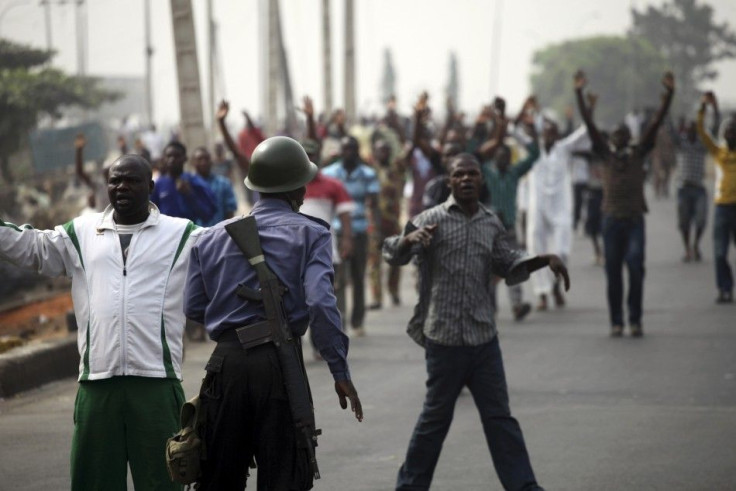Nigeria Protests on Hold after Fuel Prices Slashed

Weeks of labor strikes and protests in Nigeria came to end on Tuesday after President Goodluck Jonathan's government agreed to partially restore a fuel subsidy.
Nigerians have been protesting the government's removal of a fuel subsidy on Jan. 1, which caused the price of oil to more than double across the country. Nigeria has rich petroleum deposits but because of infrastructure inadequacies cannot refine its own oil, and is forced to import from abroad. For decades, the government fronted the import costs, but in an effort to raise $8 billion, removed the subsidy.
Prices rose from about $1.70 per gallon to an average to $3.50 per gallon overnight.
Following economically crippling strikes organized by Nigeria's national labor unions, the government agreed to cover part of the cost. The newly agreed price sits at $2.27 a gallon, which was considered a victory for the unions but will still be a challenge for a citizenry that earns less than $2 a day on average.
Government will continue to pursue full deregulation of the downstream petroleum sector. However, given the hardships being suffered by Nigerians, and after due consideration and consultations... government has approved the reduction of the pump price of petrol, the president said in a speech, according to Reuters.
To reinforce his mandate, Jonathan, using one of his favorite political tricks, sent soldiers into the streets to stop the protests. Troops barricaded key rallying points in major cities, such as roads in Lagos and parks and squares in Kano.
They are here because they don’t want us to protest, Remi Odutayo told The Associated Press from a park in the Ojota neighborhood of Lagos. They are using the power given to them to do something illegal, he added, referring to the constitutionally protected right to civil protest.
Military intervention is a touchy issue in Nigeria. The country's democracy is only two decades a old, and a civil war tore apart the nation a generation ago. Now, a violent insurgency in the north threatens to do so again. Jonathan has already sent in soldiers to combat the Boko Haram rebel group in Borno and other northern states, a polarizing move that has resulted in shoot-outs on the street and house-to-house interrogations.
In his speech, Jonathan said that the protests, which were largely peaceful but did result in about a dozen deaths, were being infiltrated by violent, anarchic provocateurs and agitators.
Tens of thousands of Nigerians have taken part in demonstrations across the country.
© Copyright IBTimes 2024. All rights reserved.




















